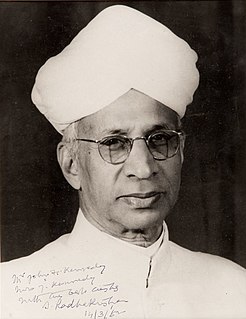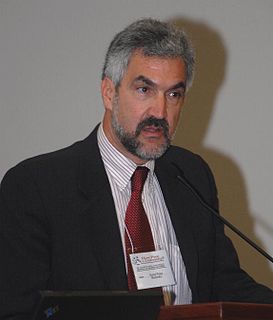A Quote by Roland Barthes
In 1850, August Salzmann photographed, near Jerusalem, the road to Beith-Lehem (as it was spelled at the time): nothing but stony ground, olive trees; but three tenses dizzy my consciousness: my present, the time of Jesus, and that of the photographer, all this under the instance of 'reality' - and no longer through the elaborations of the text, whether fictional or poetic, which itself is never credible down to the root.
Related Quotes
These tenses-past, present and future-are not the tenses of time; they are tenses of the mind. That which is no longer before the mind becomes the past. That which is before the mind is the present. And that which is going to be before the mind is the future. Past is that which is no longer before you. Future is that which is not yet before you. And present is that which is before you and is slipping out of your sight. Soon it will be past.
nothing happens in August - except when something really happens in August. World War I began in August, Saddam Hussein's invasion of Kuwait began in August, al Qaida was preparing to bring down the World Trade Center in August. August, in other words, is the time when all of us should prepare our backup plans, chart our reversals of course, [and] think through possible paradigm changes.
All thought of something is at the same time self-consciousness [...] At the root of all our experiences and all our reflections, we find [...] a being which immediately recognises itself, [...] and which knows its own existence, not by observation and as a given fact, nor by inference from any idea of itself, but through direct contact with that existence. Self-consciousness is the very being of mind in action.
There are certain concepts, which exist in English, and are unthinkable, untranslatable into Hebrew and vice versa. Hebrew has a system of tenses, which is, in a big way, different from the English system of tenses, probably different than any European system of tenses, which means a different sense of reality, which means a different concept of time. So, things can be translated, but they become different.
We are living in a culture entirely hypnotized by the illusion of time, in which the so-called present moment is felt as nothing but an infinitesimal hairline between a causative past and an absorbingly important future. We have no present. Our consciousness is almost completely preoccupied with memory and expectation. We do not realize that there never was, is, nor will be any other experience than present experience. We are therefore out of touch with reality.
Nothing could go wrong because nothing had...I meant "nothing would." No - Then I quit trying to phrase it, realizing that if time travel ever became widespread, English grammar was going to have to add a whole new set of tenses to describe reflexive situations - conjugations that would make the French literary tenses and the Latin historical tenses look simple.
The self (Soul) is the constant-witness consciousness. Through all months, seasons and years, through all divisions of time, the past, present and future the consciousness remains one and self luminous. It neither rises nor sets. The ultimate self is free from sin, free from old age, free from death and grief, free from hunger and thirst, which desires nothing and imagines nothing.
After I did the drawings of trees combining them with words, I started doing - I did that for a very short time. Then it kind of - that sort of evolved into just showing the branches of a tree coming down into the trunk and then going into the root system. So I showed both the branches and the roots of a tree, which were about equal. There is as much going on under the ground as is going on above the ground, which you can see.
The images which the [press] photographer has filtered from reality, whether particular events or the anguish of human reactions to them, already bear a stamp of authenticity which the photographer is powerless to alter by one jot or tittle; the meaning of the objects, by a process of purification, itself becomes the theme of the work.
Consciousness... does not appear to itself chopped up in bits. Such words as 'chain' or 'train' do not describe it fitly as it presents itself in the first instance. It is nothing jointed; it flows. A 'river' or a 'stream' are the metaphors by which it is most naturally described. In talking of it hereafter, let us call it the stream of thought, of consciousness, or of subjective life. Source of the expression 'stream of consciousness'.
The humans live in time but our Enemy destines them to eternity. He therefore, I believe, wants them to attend chiefly to two things, to eternity itself, and to that point of time which they call the Present. For the Present is the point at which time touches eternity. Of the present moment, and of it only, humans have an experience analogous to the experience which our Enemy has of reality of whole; in it alone freedom and actuality are offered to them.


































